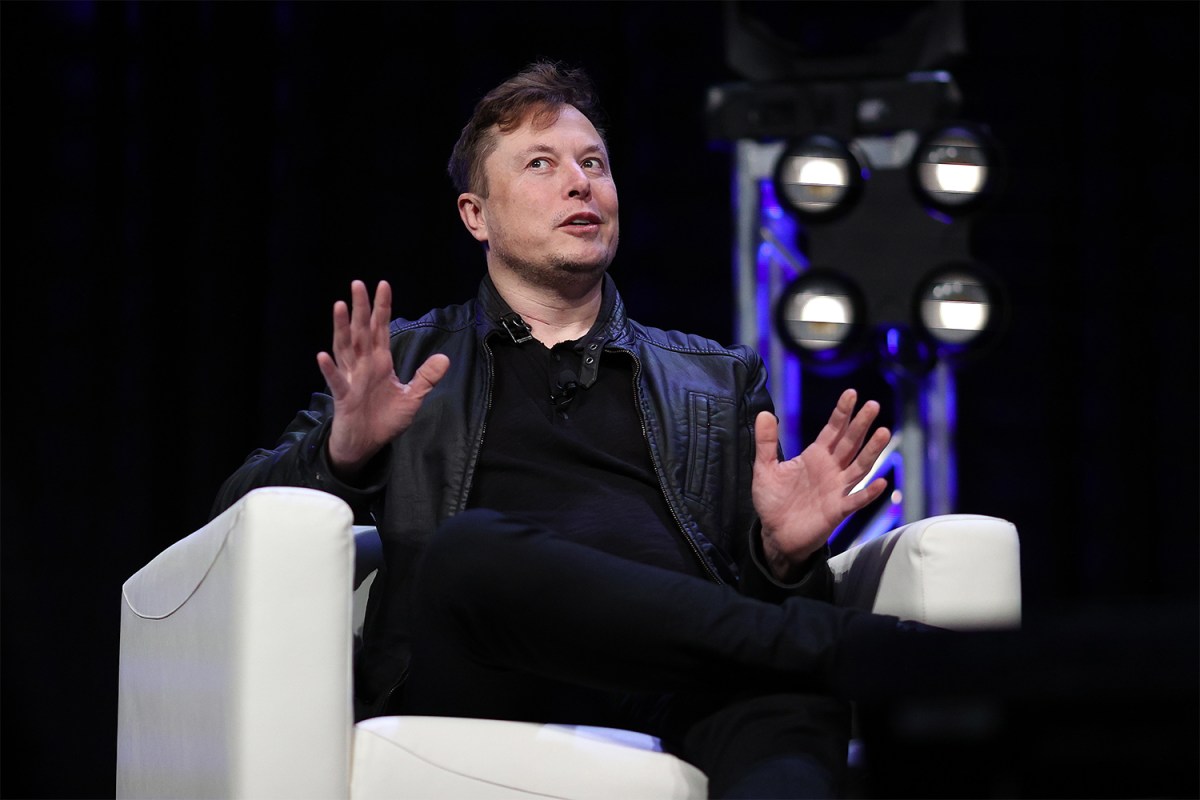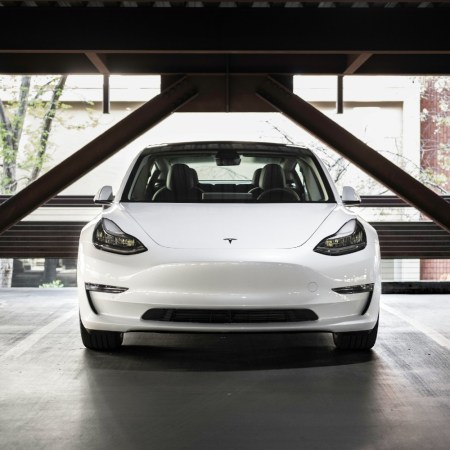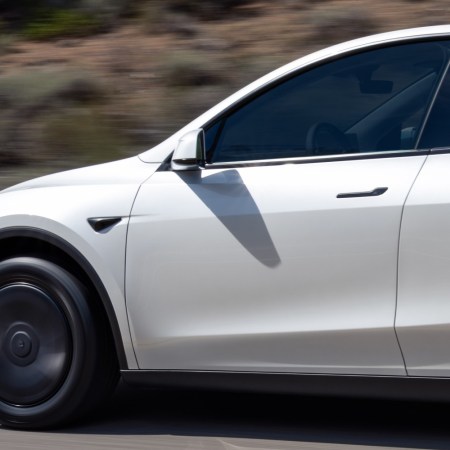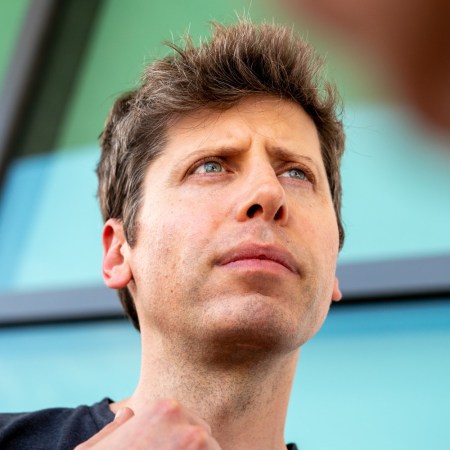In case you weren’t aware, Elon Musk is not a medical expert.
He is, by way of being CEO of Tesla and SpaceX, an expert on both electric vehicles and spacecraft. And by way of his education, including bachelor’s degrees in physics and economics (and two days in a Stanford Ph.D. program), we can also assume he is a more than competent resource in many areas of science and business. But again, medicine, and particularly epidemiology, is not one of those areas.
That hasn’t stopped the billionaire from taking to Twitter to offer his personal advice on how the U.S. should handle COVID-19, a disease we’re not even close to fully understanding. His latest counsel, sent at 2:14 a.m. EDT on Wednesday, April 29, was succinct: “FREE AMERICA NOW.”
Not to be outdone by himself, on an earnings call later that day, CBS News reported that Musk called stay-at-home orders “fascist.” But the public tweet has subsequently been championed by misguided quarantine “protestors” and conspiracy theorists as proof that stay-at-home orders should be undone, which goes against both Centers for Disease Control and Prevention recommendations as well as forecasts that show deaths will likely continue to rise. Even some of the more levelheaded Americans are bound to believe that if Elon Musk, one of our great geniuses, says it, then it must be true.
Except Elon Musk is not a medical genius. In this instance, he is no more than yet another unqualified mouthpiece in a growing list of blowhards better regarded as armchair epidemiologists.
In a recent interview with David Dunning, one of the two social psychologists behind the famous Dunning-Kruger effect, Sarah Weinman described these people as “legitimate experts in other fields … [whose] utter belief in their own cognitive abilities gives them the false sense that their speculation, and predictive powers, are more informed than the rest of ours.” We’ve seen these so-called experts bloviate from positions of power and influence and get taken to task for it, but you’ll likely also recognize the behavior from your personal social media feeds, group text chains and work Slack channels.
And among all of these would-be “truthers,” there is one voice that rises above the rest, both because of the scope of his influence and the persistence of his dubious claims: Elon Musk.
If you’re just tuning in to his expertise after “FREE AMERICA NOW,” you may be unaware that he has been making coronavirus-related predictions for a while now. And guess what? They’ve all been unequivocally wrong. Let’s take a look. (We’ll be embedding tweets and also writing them out in case they are deleted in the future.)
March 6: “The coronavirus panic is dumb”
Of course the general idea of panic is bad. But the subtext here is the downplaying of anxiety over coronavirus, which at that time only amounted to 47 cases in the entire U.S., according to the CDC. Now the U.S. has surpassed 1 million cases and 57,000 deaths. So actually, a little more panic among authorities may have been a good thing, but I can’t say for sure, because this is admittedly not my personal area of expertise.
March 16: “Maybe worth considering chloroquine for C19,” “Hydroxychloroquine probably better”
The efficacy of using these malaria drugs in the treatment of COVID-19 is still being studied, but beginning in mid-March, it was touted as a miracle drug by both President Trump and right-wing media outlets without sufficient evidence. The FDA was forced to issue a statement advising against use of the drugs outside a hospital setting or clinical trial.
March 19: “Based on current trends, probably close to zero new cases in US too by end of April”
Today is the first day of May. On Wednesday, the CDC reported 23,901 new cases and 2,247 new deaths.
March 26: Musk retweets a thread by reporter and author Alex Berenson that ends by calling lockdown measures into question.
The stats he relied on to discredit stay-at-home ordinances included the estimate that “the coronavirus will probably kill under 20,000 people in the U.K.” As of April 29, deaths exceeded 26,000.
March 27: “Would be great to combine blood donations with a C19 antibody test, so you know if you’re immune. Refill blood banks & give donors peace of mind.”
It was originally assumed that if you had COVID-19 and recovered, you would not catch it again. As the BBC reported on April 28, along with other outlets, “This is not guaranteed and that is why the World Health Organization is nervous about countries using immunity passports as a way out of lockdown.”
April 29: “Hospitals in California have been half empty this whole time”
In an attempt to justify his “FREE AMERICA NOW” stance, Musk then resorted to repurposing conspiracy theory-adjacent arguments, even though it’s clear that California’s early response (such as preparing hospitals for potential patients) was critical in containing the coronavirus.
April 29: “… to say that [people] cannot leave their house and they will be arrested if they do, this is fascist. This is not democratic, this is not freedom. Give people back their goddamn freedom.”
OK, so this isn’t a tweet, but it’s a perfect example of how when someone’s tweets go off the rails, the reality is likely worse. This is the full quote from the aforementioned earnings call. As CBS News wrote, “No state has implemented an order forbidding residents from leaving their homes, although many have ordered residents to only leave for essential purposes.” But apart from the blatant disregard for facts, there is a much more sinister incentive that could potentially be motivating Musk here: he’s close to receiving a long-awaited payout from Tesla of about $750 million, but it’s tied to the stock market value of the company which has seen unwelcome volatility during the pandemic. In other words, if Tesla stays shut and its stock dips again, there may be no pay day for a while.
We could go on and include his sarcastic replies to people who challenge him on Twitter, but you get the gist.
If this doesn’t convince you that Elon Musk is woefully out of his league here, and that his misguided opinions masquerading as expert advice are legitimately harmful when broadcast through his 33.4-million-follower megaphone, you don’t have to listen to us. Listen to Elon himself. Back in November 2019, he tweeted that he was “going offline” because he was “not sure about [the] good of Twitter” — this was, of course, amid the defamation suit brought against him after he called one of the Thailand cave rescuers a “pedo guy”.
Musk has since deleted all three of those tweets. One can only hope he has it in him to click the trashcan icon again.
This article appeared in an InsideHook newsletter. Sign up for free to get more on travel, wellness, style, drinking, and culture.



















